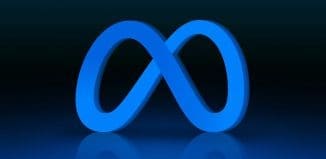Successful Flight to Facebook Internet Supply Drone
This post is also available in:  עברית (Hebrew)
עברית (Hebrew)
There are still 4 billion people without Internet access in the world. As many as 1.6 billion of those unconnected people live in remote locations with no access to mobile broadband networks.
Facebook, like Google, has been studying a range of Internet-delivery technologies including balloons, high-altitude drones and satellites.
Facebook has leased, with satellite fleet operator Eutelsat of Paris, a portion of the Ka-band payload on Israel-based fleet operator Spacecom’s Amos 6 satellite, scheduled to launch in late August aboard a SpaceX Falcon 9 rocket. The satellite will deliver Internet to 14 nations in sub-Saharan Africa. So far, Facebook has not committed to a larger satellite, which Eutelsat has ordered, to expand the service.
On July 21 Facebook announced that the first flight of its full-scale Aquila solar-powered aircraft designed for regional internet connectivity was a success, lasting longer than expected despite an unspecified “structural failure” just before landing.
The 96-minute flight, conducted in Yuma, Arizona, confirmed the validity of Aquila’s structural design and avionics, Facebook said. But the company cautioned that many months of testing – at higher speeds and altitudes, and for longer durations – would be necessary before Aquila can move into industrial-scale production.
The company said developments in battery technology will be key to enable future Aquila craft to remain in service, without interruption, for several months at a time even during low-sunlight-exposure periods during winter.
According to the announcement, with a wingspan greater than a Boeing 737’s average 35 meters in length, Aquila is designed to stay aloft, at more than 60,000 feet in altitude, for three months, delivering high-speed Internet connectivity to a 100-kilometer-diameter region. Facebook is investigating both laser and millimeter-wave signal-delivery systems.
Aquila’s optimal speed is around 130 kilometers per hour for a three-month service flight. Facebook said unmanned aircraft ultimately should be less expensive to deliver to a given population than fiber or microwave links.
Its solar-powered motors, avionics and Internet delivery gear will operate on five kilowatts of power. Facebook said it’s likely that the batteries alone will account for around 50 percent of Aquila’s total liftoff weight.





























